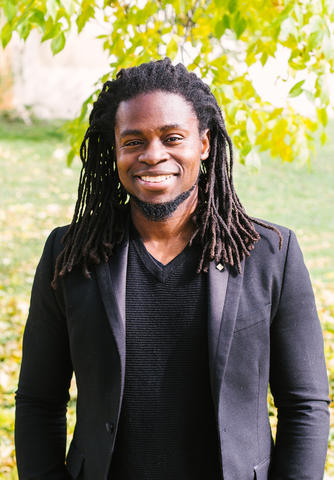
Second Time's the Charm
Wednesday, March 4, 2020
Thompson Aderinkomi, ‘11 MBA, isn’t a stranger to the challenges of starting a business. He’s done it -- many times.
In 2011, he took his one-year-old son to the clinic and had what he called an “unpleasant, time-wasting, and expensive experience.” As someone who had previously worked as a healthcare economist, he knew there had to be a cheaper, better way to handle the situation. So he rolled up his sleeves and started his first business.
RetraceHealth launched in 2012 with a concept of healthcare delivery that looked remarkably similar--and different--from what you expect in a trip to the doctor. Yes, you still saw a nurse practitioner who provided a diagnosis, could perform lab work, and prescribe medication. But visits were either in-home or through telemedicine. And it avoided dealing with insurance by having customers pay a monthly fee for unlimited access to the service.
The business took off and several investors put their money into it. But startups like this are incredibly capital intensive, especially as they’re scaling, says Aderinkomi. Four months after investing, the largest of the investors had different ideas about how to manage it going forward and forced him out. RetraceHealth would shut down altogether less than 6 months later.
Being forced out of the company was a low point, but Aderinkomi still came away from it having learned a valuable lesson in trust.
“The business was working well when I was forced to leave,” he says. “So the most-important lesson I learned was to dig deeper into the backgrounds and motives of any investor I work with in the future to ensure they’re the right partner for me and aligned with my vision.”
Aderinkomi didn’t spend time feeling sorry for himself. At the urging of his family and former employees, a desire to make whole the angel investors who gave Retrace money early on, and the belief that this healthcare model provided value to patients, he launched Nice Healthcare with two former employees as co-founders.
In many ways, it’s RetraceHealth by another name. “Many of the employees are the same, and the first 10 customers were from RetraceHealth,” Aderinkomi says. “The only major difference is our current investor.”
The “Nice” model is clearly catching on -- it’s grown 300 percent every year, and in just two years it has 10 times the revenue that Retrace did when it shut down.
Aderinkomi says some of his success can be attributed to his time at the Carlson School working on his MBA.
“I use the skills I learned in entrepreneurship courses and the Ventures Enterprise every day in my work as CEO of Nice Healthcare,” he says. “And I still get advice and mentorship from people I met while in the program.”
Among those is Toby Nord, executive director of the Ventures Enterprise program. He says Aderinkomi’s success is in part because of his values-first approach.
“Thompson is caring, humble and honest, that's just who he is,” Nord says. “He has remained true to his values through the ups and downs of his 10-year entrepreneurial journey. This is reflected in the businesses he chooses to build, how he manages and operate those businesses, in his everyday relationships, and in the fact that his family remains central to his overall wellbeing, not the rise and fall of commerce.”
Aderinkomi has kept his spirits high throughout his journey. That’s because he views entrepreneurship as a career path -- one that comes with setbacks, but also chances for success and refinement. Retrace and Nice are just two of the four businesses he has started since graduating with his MBA.
“The best advice I can offer to people interested in becoming entrepreneurs is to start your company now and view it as a career,” he says. “The first company might not work out, but the lessons learned will inform the second, third, and fourth.”

